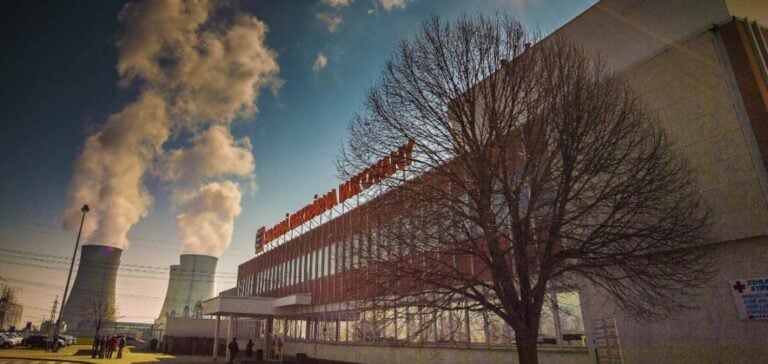The Czech Office for Competition (UOHS) has received appeals from EDF and Westinghouse following the award of the contract to build two nuclear reactors at the Dukovany power plant.
The project, initiated by the CEZ group, aims to strengthen the country’s energy independence by increasing its nuclear capacity. South Korea’s Korea Hydro & Nuclear Power (KHNP) won the tender in July 2024, a decision that prompted immediate reactions from its competitors.
EDF and Westinghouse, eliminated during the selection process, raise concerns about the integrity of the procedure.
They allege irregularities, in particular concerning KHNP’s use of technologies licensed from Westinghouse.
Both companies question the legitimacy of the tender, pointing to a lack of transparency and potential violations of intellectual property rules.
Charges brought against KHNP
Westinghouse accuses KHNP of incorporating proprietary technologies into its bid, without the necessary approval for their use.
The APR1000 and APR1400 reactors proposed by KHNP are said to be based on technologies developed under license from Westinghouse, raising questions about the validity of the bid submitted.
This accusation is at the heart of the appeal lodged with the UOHS, and could call into question the decision to award the contract.
EDF, which has also lodged an appeal, questions the selection process, pointing to irregularities in the tender procedure.
Although the details of its appeal are not yet public, EDF’s involvement adds weight to the challenge, reinforcing the idea that the procedure may have been biased.
Potential impact on the project
The appeals lodged by EDF and Westinghouse could have far-reaching consequences for the Dukovany project.
If the UOHS finds the complaints to be well-founded, this could lead to a suspension or reconsideration of the contract award, thereby delaying the project’s implementation.
Such a decision would affect not only KHNP, but also the energy ambitions of the Czech Republic, which depends on this project to achieve its energy diversification objectives.
This situation also highlights the challenges faced by companies operating in the nuclear sector, where issues of intellectual property and compliance with regulatory procedures are increasingly crucial.
The fallout from this case could have repercussions on future relations between companies and governments in international tenders, particularly in the highly sensitive field of nuclear energy.






















